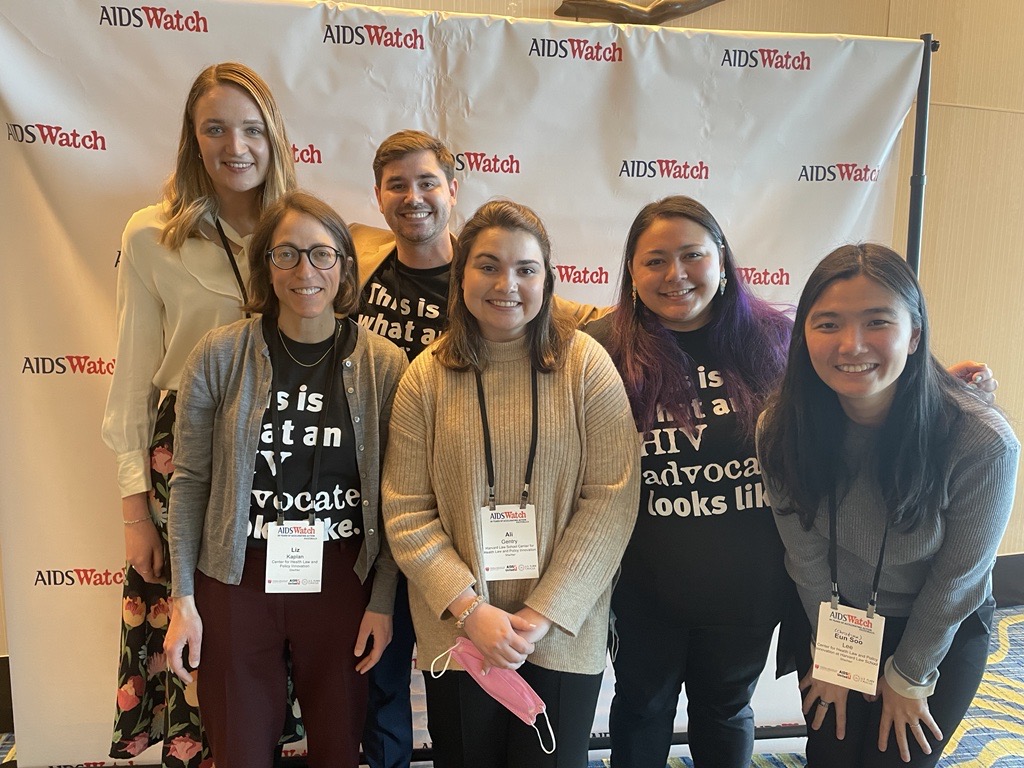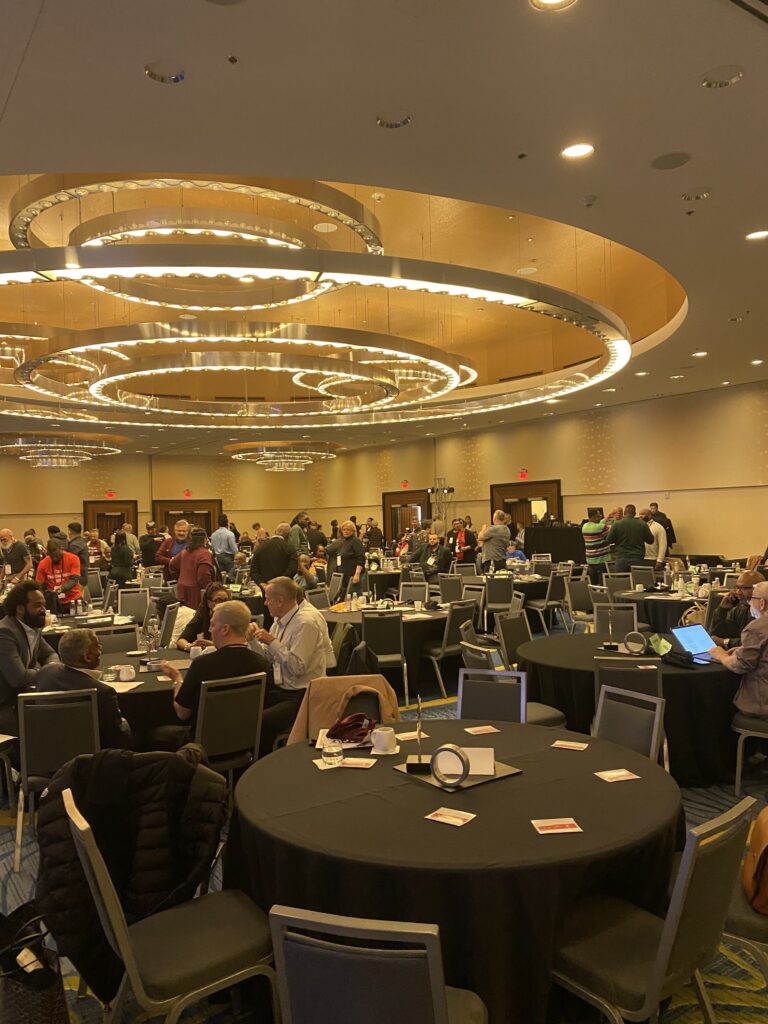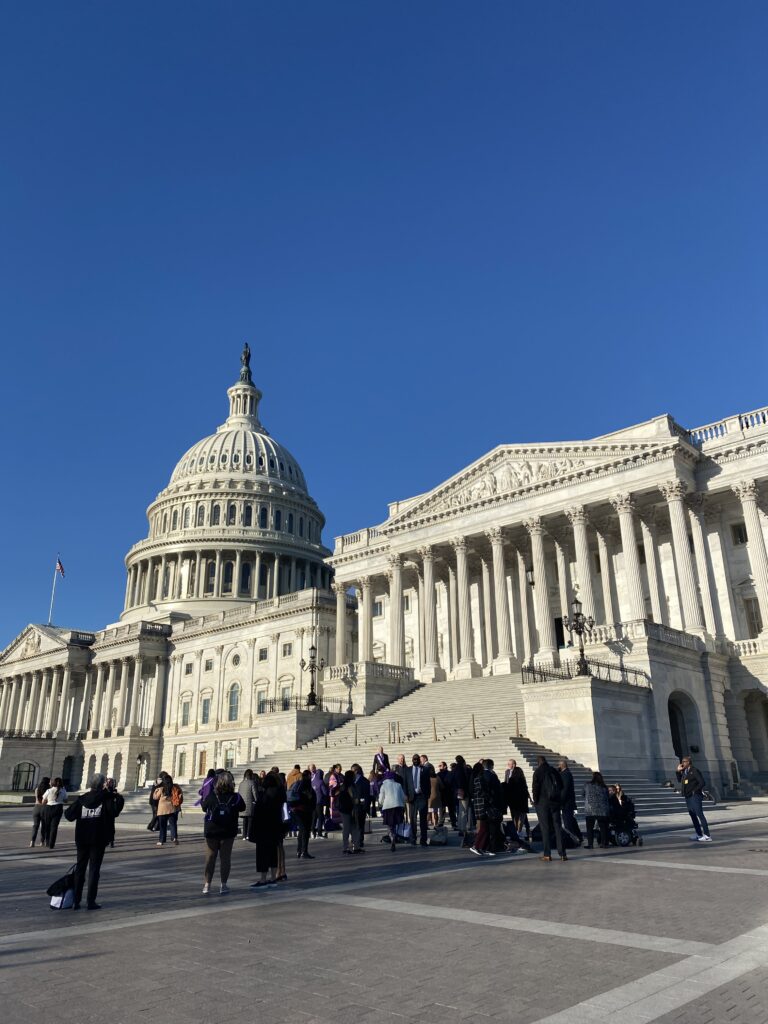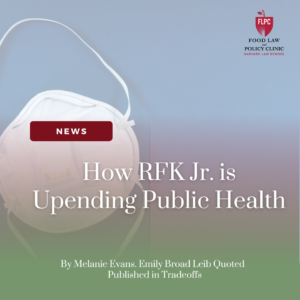Written by Aoife O’Malley, spring 2023 Health Law and Policy Clinic LLM student

Over 350 HIV advocates from 37 states met in Washington D.C. on the 19th of March to launch the 30th annual AIDSWatch Conference. This year’s conference was hosted by AIDS United, in partnership with the US People Living with HIV Caucus and the Center for Health Law and Policy Innovation of Harvard Law School. While this gathering provided an opportunity to reflect on the major progress that advocates have made over the past three decades, it also served as an opportunity to remind policymakers that the struggle for equality for those living with HIV is far from over. As always, this year’s Conference emulated its core value of meaningful involvement of people living with HIV with representatives of the HIV community, travelling from all parts of the country to have their voices heard.
On Monday, attendees participated in over 16 different panel discussions on some of the most pertinent issues affecting individuals living with HIV. From harm reduction advocacy and gender-affirming health care, to HIV policy in the South and immigration policy, attendees had the opportunity to engage in discussions on a wide range of important areas. Throughout the sessions, some notable themes arose, including the deficit in adequate funding allocated towards resources for individuals ageing with HIV. Jessie Milan, President and CEO of Aids United, reminded the attendees that ending the AIDS/HIV Epidemic “will not end us”. On this 30th year anniversary, he stated that greater efforts must be pursued to ensure that individuals living and ageing with this virus are not forgotten.

A recurrent interconnected issue echoed over the two days was the difficulty faced by the HIV community due to Congress’ flat funding of the Ryan White Program. The Ryan White Program helps low income people with HIV who are uninsured or underinsured to access medical care, medications and essential support. Due to inflation, advocates expressed deep concerns that the Ryan White Program was not sufficiently supporting those who need these resources the most.
Another recurrent issue that emerged during the Conference was the persistent criminalization of HIV in many states, particularly in the South. 25 states still have HIV specific criminal laws. This criminalization of HIV remains not only an infringement of human rights but a serious barrier towards eliminating the engendered stigma experienced by individuals living with HIV and accessing appropriate care.
One further concern on attendee’s minds was the impending cease of the COVID-19 Medicaid moratorium for eligibility and redetermination calculations. Advocates expressed their serious concern that the end of this grace period would detrimentally affect access to affordable coverage for thousands of individuals with HIV across the country.

On the last day of the Conference, advocates rallied to Capitol Hill to participate in meetings with 182 congressional offices to inform policymakers of these and many other serious issues affecting the HIV community. Advocates reminded representatives that while President Biden’ s cabinet has been largely supportive of the HIV agenda, significant work remains at both a state and a federal level before the HIV Epidemic is ceased and equal access to both prevention and life prolonging HIV treatment is realized.


